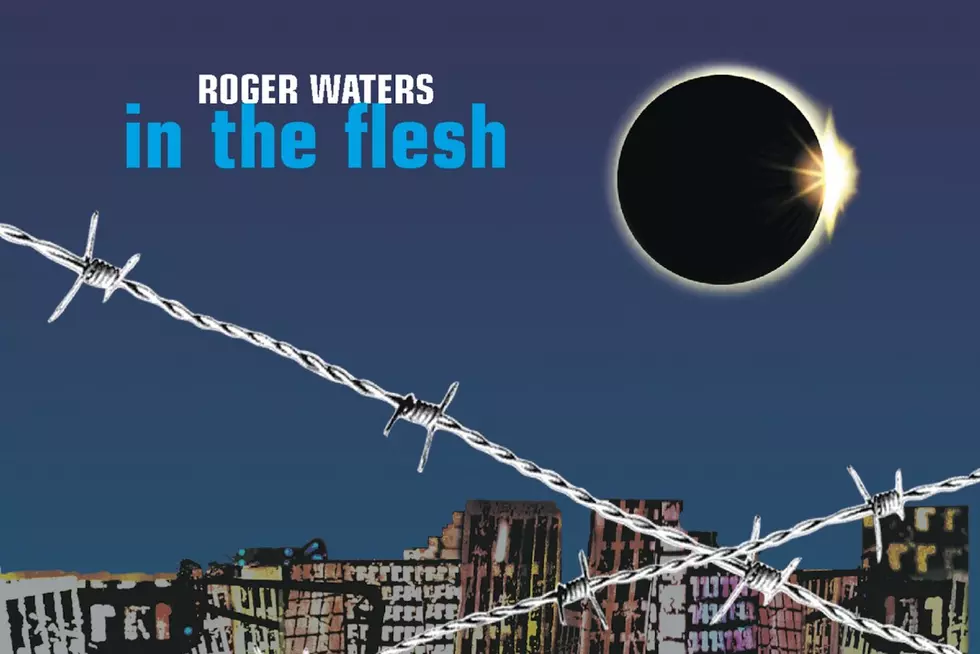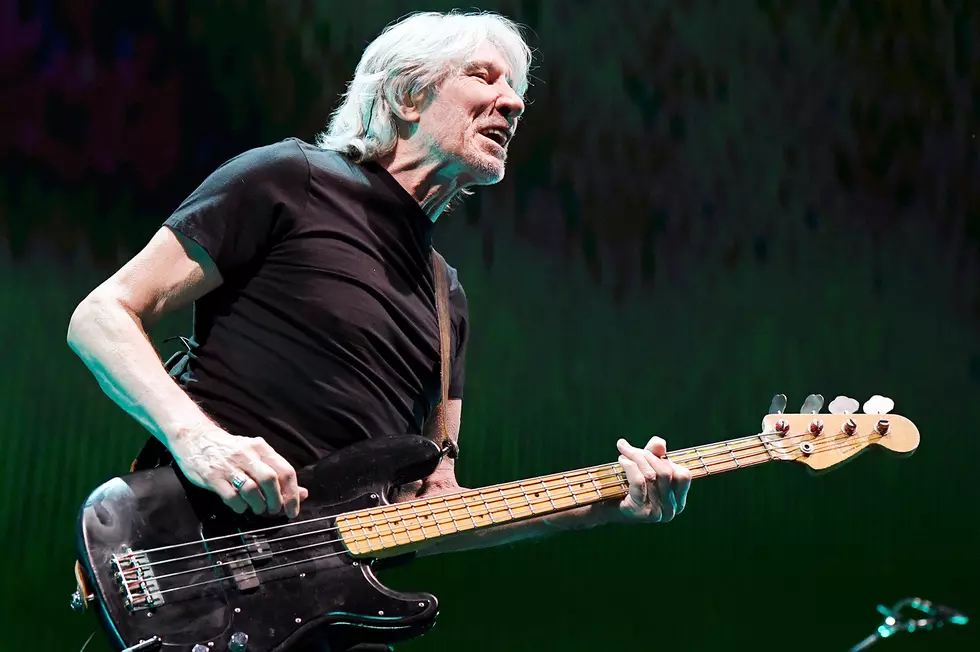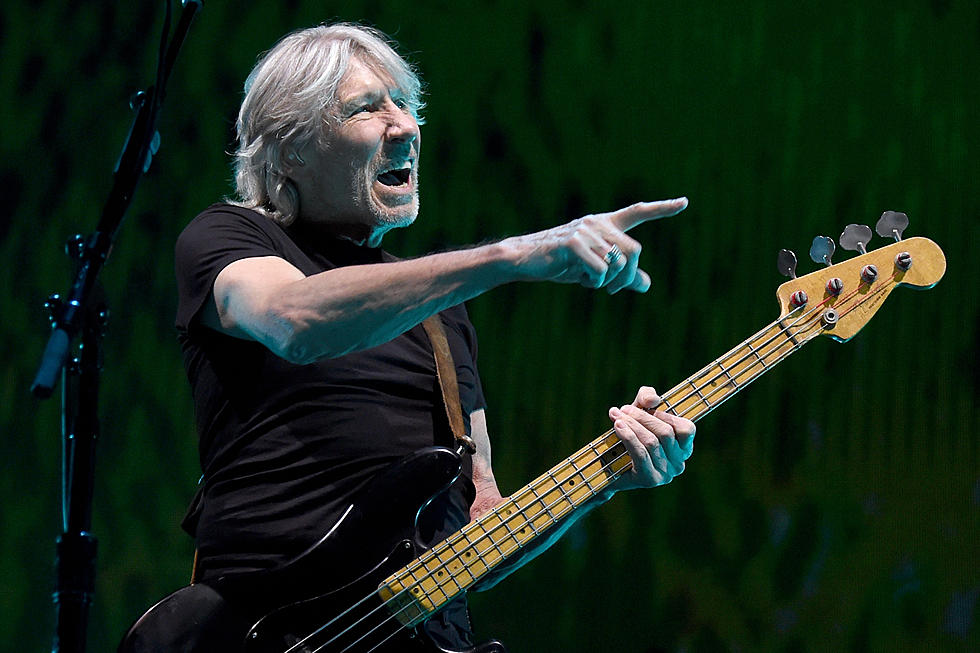
How Roger Waters Became a Touring Juggernaut With ‘In the Flesh’
Roger Waters didn't enter the tour dates documented on In the Flesh: Live with any great ambition.
He'd left the road after watching as his former bandmates continued the Pink Floyd brand into the late '80s and early '90s, playing huge arenas dominated by songs that were largely created by Waters. Meanwhile, his shows – despite being played in much smaller theaters – were struggling to reach half capacity.
"I was fighting the juggernaut," Waters told the Denver Post in 1999 prior to an In the Flesh tour stop. "I actually did some gigs the same week that Pink Floyd was doing them in town. I was playing to about 2,000 people in an 8,000-capacity arena, and the boys were over selling out 80,000 seats in the football stadium. That was a painful piece of change."
Then David Gilmour put Pink Floyd to rest following another massive tour in support of 1994's The Division Bell. In their absence, Waters says he finally began to earn back some of the respect he'd long craved.
"I have sensed over the last two years something of a turning of the tide in terms of the public's awareness of who I am and what my contribution to Pink Floyd was – and how my philosophies, musical and political, differ from Dave Gilmour's, for instance," Waters told Billboard magazine in 2000. "I almost never think about it, but for Dave and Nick [Mason] to be going around the world playing in football stadiums the very songs that I wrote in protest of that rank kind of commercialism felt very much to me like my children being sold into prostitution. It was very painful, and if I could have stopped it, I would have."
Still, he didn't commit to more solo shows until taking the stage for a one-off gig in support of Don Henley's Walden Woods project. "I did four or five songs, and it was such fun that I thought, 'I must do this again,'" Waters told USA Today in 2000. "I planned to spend this summer in Long Island and decided to do some dates and see how it feels. I started relearning a bunch of the old songs, and it felt very exciting."
Still stung by past experiences, Waters started small by only booking modest amphitheaters like Cleveland's Nautica, a 5,000-seat downtown venue. He figured they'd be on the road for less than a month.
Listen to Roger Waters Perform 'Shine on You Crazy Diamond'
"What happened was, we were flying commercial airlines at first," sideman Snowy White told Rolling Stone in 2020. "I can see this picture in my head of Roger sitting in the waiting area at the airport, not looking very happy at all. ... And then I remember the promoter talking to Roger: 'We sold this out; I think we better move it to the bigger place.' It got bigger and bigger."
Pink Floyd fans were snapping up tickets so quickly that the entire tour jumped to larger venues. Ultimately, Waters would play 105 shows at basketball arenas and outdoor amphitheaters over three years. White said they were flying on private jets by then.
"Roger got the bit between his teeth and realized this could be exactly what he's always wanted," White added. "He was totally in control of the band and music. He didn't have to deal with the Pink Floyd thing or anything. He was happy. He was part of the band. It was a band feel. It felt really good."
A concert recording to commemorate these successes seemed like a no brainer, and In the Flesh: Live followed on Dec. 5, 2000. Waters included key tracks from 1992's Amused to Death, and he closed with "Each Small Candle," a long-unfinished plea for peace that Waters returned to in the aftermath of 1999's NATO bombing of Yugoslavia.
Still, the focus for many remained his highly anticipated reworkings of music from his old band. Waters obviously sensed that, enlisting help from a stable of veteran Pink Floyd collaborators. In the end, 15 of this double album's 24 tracks dated back to that era.
Producer James Guthrie began working with Waters on 1979's The Wall. White had been playing with Waters since he toured as a second guitarist with Pink Floyd on dates in support of 1977's Animals. In an interesting twist, the band also featured Jon Carin, a keyboardist and vocalist from Pink Floyd's post-Waters tours.
"I don't have any worry about the fact that he's somebody who might be seen to have been in another camp at some point," Waters told Guitar in 2002. "That's not a problem. He's a big fan of the music and the songs, and he expressed that very clearly when we spoke on the telephone before we rehearsed together."
Listen to Roger Waters Perform 'Dogs'
Unfortunately, "Each Small Candle" didn't point to a new rock studio album. Waters was still trying to complete Ca Ira, a long-gestating opera focusing on the French Revolution. His next proper solo project ended up being 2017's Is This the Life We Really Want?
Meanwhile, Waters' first career-spanning solo concert recording somehow stalled at a disappointing No. 136 on the Billboard chart, and No. 170 in his U.K. home country. But In the Flesh: Live marked an important turning point: Waters had become a touring juggernaut, after decades of frustration.
He followed this album with an international-tour announcement, confirming a string of dates during a news conference at Abbey Road Studios – where Pink Floyd recorded both 1973's Dark Side of the Moon and 1975's Wish You Were Here, among others.
Something clicked for a performer who'd previously shied away from the concert trail, much less playing sprawling football stadiums. "My answer to the why," Waters told the Daily Star in 2002, "is: 'I am a performer and I have rediscovered the stage.'"
He then mounted an enormous globe-spanning tour highlighting Dark Side in 2006-08, followed by more than 200 dates recreating The Wall between 2010-13. Those later shows reportedly grossed nearly half a billion dollars, setting new records.
Even smaller-scale efforts like the 156-show Us + Them tour played to more than 2.3 million people in 2017-18. Pollstar later placed Waters' total earnings from the In the Flesh: Live era through 2019 at a whopping $835 million.
Worst Solo Albums
Why Pink Floyd’s David Gilmour and Roger Waters Are Still Fighting
More From KLTD-FM










